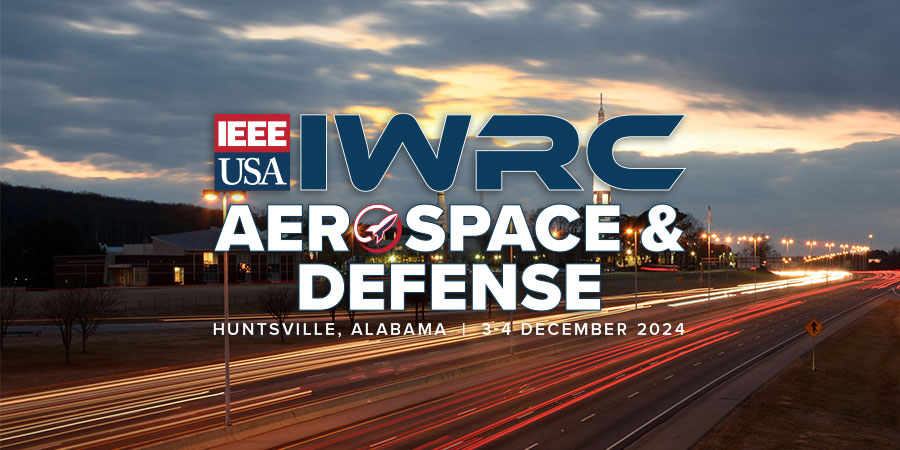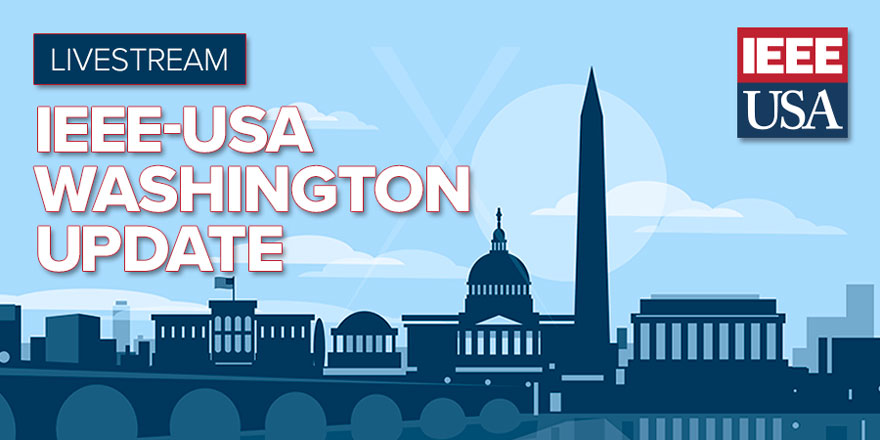About
The AI Policy Committee brings together IEEE members with experience and expertise in the various disciplines used in scientific field of artificial intelligence (AI) to address the public policy needs of the S&T community working with this important emerging technology. The committee meets as needed to address current events and the emerging questions related to AI, and publishes position statements that reflect a consensus viewpoint of IEEE’s U.S. membership, and which IEEE-USA staff will use to guide advocacy efforts within the United States. Specific uses include, but are not limited to, legislative advocacy, rule-making notice-and-comment letters, and advocacy efforts with the US Administration and federal agency officials.
Rationale
AI, the theory and development of computer systems that are able to perform tasks normally requiring human intelligence, is a rapidly emerging technology. While AI can be an effective and efficient enabler for national security and social good, and has significant potential for a wide range of commercial applications, society must acknowledge and address a number of salient issues. Increasingly, AI applications significantly impact every aspect of American society, with implications for the economy, public safety, privacy, and governmental applications.
For these reasons, the US government must create coordinated federal policy, which includes supporting AI R&D adequately while enacting effective laws and regulations that promote safety, privacy, cybersecurity, and intellectual property protection. Federal public policies must also assure transparency and provide the information necessary to allow the public to make informed decisions about the use of AI. Insufficient attention to any of these areas could result in high-profile controversies, critical technological failures, or even loss of life. Well-considered policies are essential for AI to achieve its full potential to create value for our society and allow the US to remain the leader in AI innovation.
Position Statements
- Auditing of Automated Decision Systems (Feb 2024)
- Effective Governance of Artificial Intelligence (Nov 2023)
- Artificial Intelligence: Jobs, Education, Workforce, and Diversity (Nov 2021)
- Privacy, Equity and Justice in Artificial Intelligence (Nov 2021)
- Democratic Use of Artificial Intelligence (Nov 2021)
- Digital Personal Privacy, Awareness and Control (Nov 2021)
Recent Policy Communications
For a complete listing, please visit: https://ieeeusa.org/public-policy/log/archive/
Testimony
- 22 January 2020 – Marc Canellas’ testimony before the New York City Council Committee on Technology on Local Law 49 of 2018 in Relation to Automated Decision Systems Used by Agencies. [recorded video – Canellas’ testimony begins at 1:40:00)
News
Committee Chairs
Anne Toomey McKenna
Jeanna Matthews
Staff Contact
Erica Wissolik
Program Manager, Government Activities
Phone: 202-530-8347
Email: e.wissolik@ieee.org
AI Resources
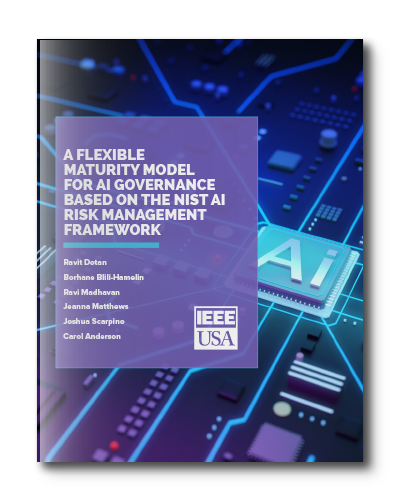 A Flexible Maturity Model for AI Governance Based on the NIST AI Risk Management Framework – This new IEEE-USA AI Policy Committee publication presents a flexible maturity model to improve AI governance, leveraging the NIST AI Risk Management Framework (AI RMF). The maturity model includes a questionnaire and a set of scoring guidelines. Key aspects of flexibility include multiple granularity levels for questions, modifications based on the life cycle stage of systems being evaluated (e.g., planning, data collection/model building, or deployment), and modifications based on whether an organization has multiple AI systems to evaluate.
A Flexible Maturity Model for AI Governance Based on the NIST AI Risk Management Framework – This new IEEE-USA AI Policy Committee publication presents a flexible maturity model to improve AI governance, leveraging the NIST AI Risk Management Framework (AI RMF). The maturity model includes a questionnaire and a set of scoring guidelines. Key aspects of flexibility include multiple granularity levels for questions, modifications based on the life cycle stage of systems being evaluated (e.g., planning, data collection/model building, or deployment), and modifications based on whether an organization has multiple AI systems to evaluate.
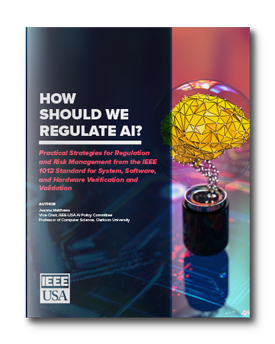 How Should We Regulate AI? – Practical strategies for regulation and risk management from the IEEE1012 Standard for System, Software, and Hardware Verification and Validation.
How Should We Regulate AI? – Practical strategies for regulation and risk management from the IEEE1012 Standard for System, Software, and Hardware Verification and Validation.
 Trustworthy Evidence For Trustworthy Technology – This new publication from the IEEE Global Initiative’s Law Committee and the IEEE-USA AI Policy Committee discusses three components of trustworthiness, with a particular focus on evidence required for establishing the trustworthiness of a system.
Trustworthy Evidence For Trustworthy Technology – This new publication from the IEEE Global Initiative’s Law Committee and the IEEE-USA AI Policy Committee discusses three components of trustworthiness, with a particular focus on evidence required for establishing the trustworthiness of a system.
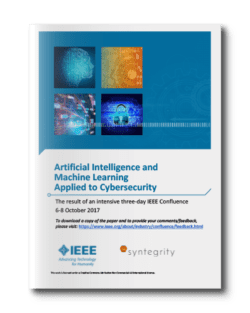 Artificial Intelligence & Machine Learning Applied to Cybersecurity: The result of an intensive three-day IEEE Confluence 6-8 October 2017
Artificial Intelligence & Machine Learning Applied to Cybersecurity: The result of an intensive three-day IEEE Confluence 6-8 October 2017
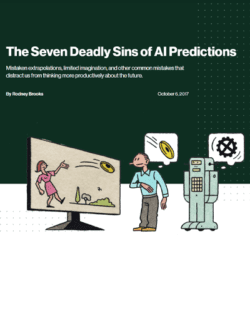 The Seven Deadly Sins of AI Predictions – Mistaken extrapolations, limited imagination, and other common mistakes that distract us from thinking more productively about the future (Rodney Brooks)
The Seven Deadly Sins of AI Predictions – Mistaken extrapolations, limited imagination, and other common mistakes that distract us from thinking more productively about the future (Rodney Brooks)
 The Great AI Paradox – Don’t worry about supersmart AI eliminating all the jobs. That’s just a distraction from the problems even relatively dumb computers are causing (Brian Bergstein)
The Great AI Paradox – Don’t worry about supersmart AI eliminating all the jobs. That’s just a distraction from the problems even relatively dumb computers are causing (Brian Bergstein)
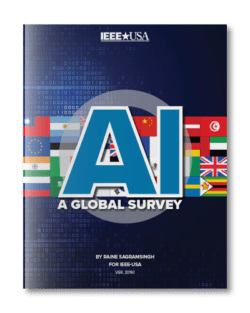 AI: A Global Survey – This AI survey provides an overview of the current national AI strategies of 26 different countries, helping US policymakers and others in the space understand the global context of AI. (Raine Sagramsingh)
AI: A Global Survey – This AI survey provides an overview of the current national AI strategies of 26 different countries, helping US policymakers and others in the space understand the global context of AI. (Raine Sagramsingh)
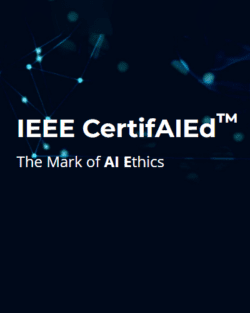 IEEE AI Ethics Certification Program
IEEE AI Ethics Certification Program
IEEE CertifAIEdTM is a certification program for assessing ethics of Autonomous Intelligent Systems (AIS) solutions to help protect, differentiate and grow product adoption.

The Ethically Aligned Design series was created to highlight specific aspects of the seminal document Ethically Aligned Design: Prioritizing Human Wellbeing with Autonomous and Intelligent Systems. More Info →
IEEE AI Standards
The IEEE SA global community is developing accessible and sustainable approaches and solutions for practical application of AIS principles and frameworks.

IEEE Smart Cities brings together IEEE’s broad array of technical societies and organizations to advance the state of the art for smart city technologies for the benefit of society.


